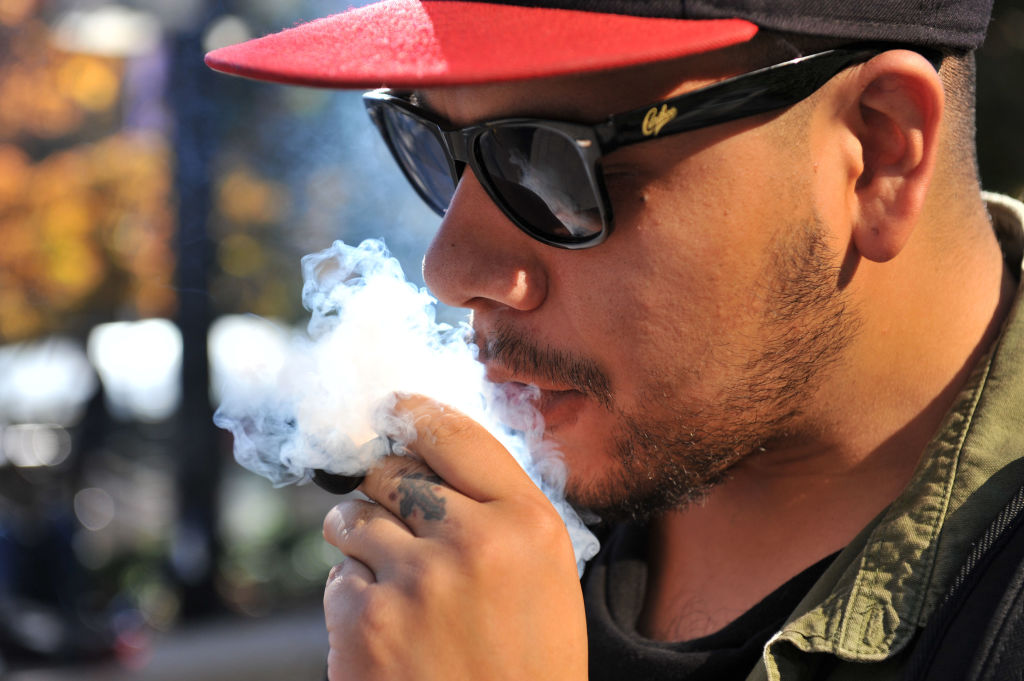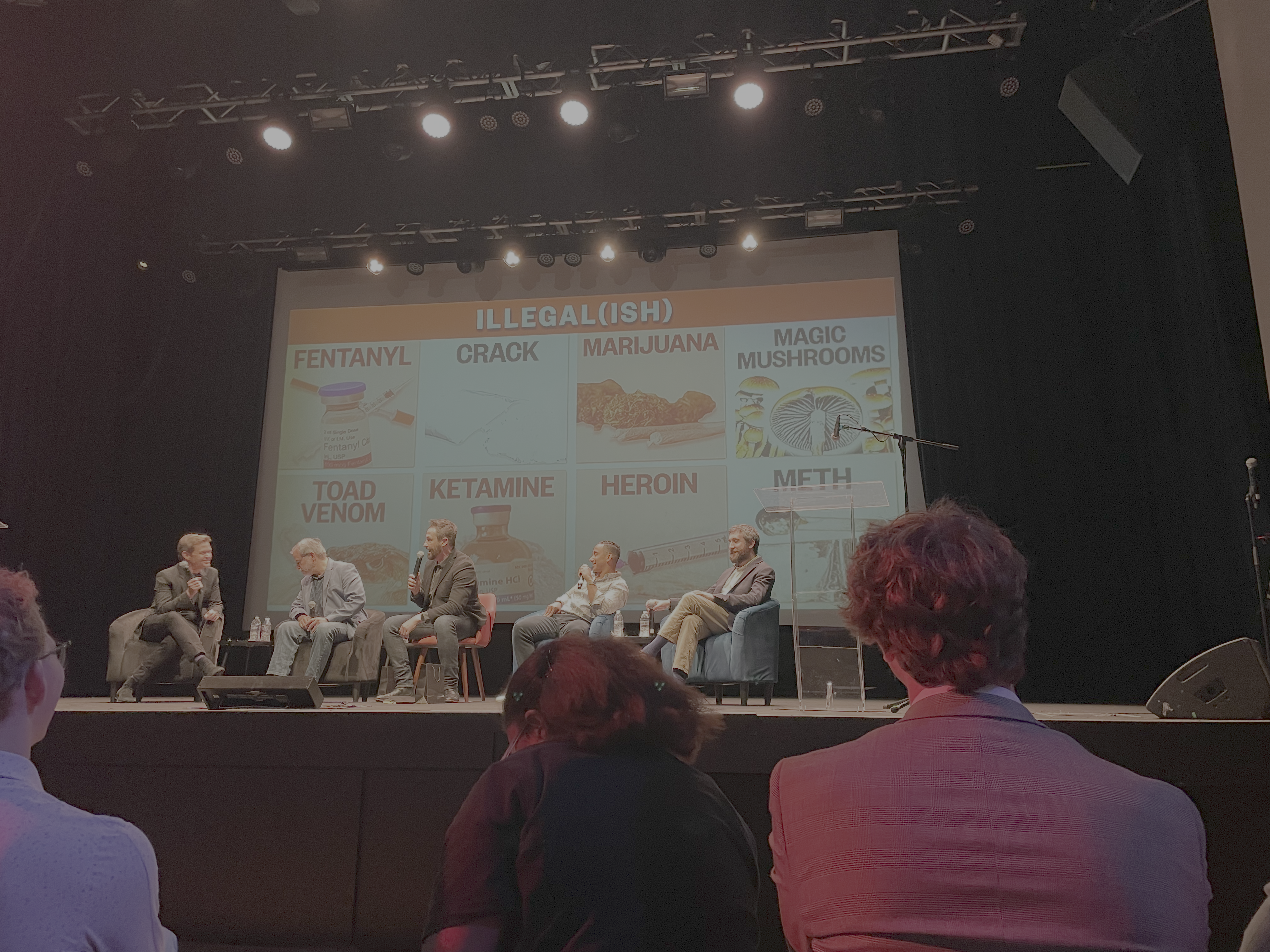It would be a cliché to describe the rapidly accelerating acceptance of marijuana legalization across the United States as a ‘green wave’ – but it may be one of the most consequential political trends of the era. Ten years ago, the notion that the anchor of the Upper Midwest would have resoundingly voted by plebiscite to remove criminal penalties for possessing the drug would have been faintly feasible, if still somewhat fanciful. Yet that’s exactly what Michigan did last week, and it hardly merited a mention amid the tsunami of other election news.
It is sometimes forgotten, but in 2016, marijuana legalization frequently outperformed both Donald Trump and Hillary Clinton, meaning that in the states where legalization was on the ballot, it in many cases received more votes than either candidate. In Nevada for instance, ‘yes’ on legalization received 63,203 more votes than Clinton, who won the state. Clinton also won the statewide vote in Maine, but received 24,033 fewer votes than ‘yes.’ By some measures, easing restrictions on marijuana consumption was the most popular initiative on the 2016 ballots – which spoke both to discontent with Clinton and Trump, and to a latent yearning in the electorate for a sane and long-overdue approach to drug policy.
These referendums are unique in that their impact on regular people’s lives is swift, immediate, and unmistakably tied to their passage. Starting in just a few weeks (after the Michigan Board of Canvassers formally certifies the election results) possession of marijuana will no longer be grounds for arrest in the state. Scan any police blotter or consult any municipal defense attorney and you’ll find that marijuana-related offenses account for an astounding percentage of ordinary citizens’ encounters with law enforcement. Police officers who pull over motorists for traffic stops can claim to ‘smell’ the odor of marijuana, which then gives them a pretext to initiate a search. This can escalate into a detention, arrest, seizure of property, or in the most extreme cases, a fatality.
Starting soon, Michigan officers will no longer have this investigatory tool at their disposal. It’s why law enforcement groups have been so implacably opposed to marijuana legalization initiatives wherever they have appeared: not necessarily because they believe marijuana itself to be a public menace (although that belief is still widespread), but because they know marijuana’s criminal status affords them an invaluable range of tactics to ensnare otherwise-law abiding citizens. Want to reduce tensions between minority populations and police? Legalization is the way to go.
The success of these initiatives directly enhances personal freedom, curtails abusive state power, and generally creates an all-around betterment of society. Rarely are the benefits of an electoral initiative ever so simple and stark. Due to this, unusual cadres of citizens have been politicized, those who ordinarily have little interest in electoral politics, but have found themselves thrust into electioneering for the first time because the stakes are so straightforward.
Take Duane Dalrymple, an unassuming 46-year-old from South Haven, Michigan, who showed up on a whim to the ‘yes’ campaign election night party last week in Lansing. Years ago he’d smoked marijuana while in the military, but it was never a big habit. He stopped using it for decades. Then, three years ago, after struggling with injuries from a car accident, high blood pressure, gout, depression – the works – his 19-year-old son badgered him into trying marijuana again. It worked absolute wonders. His symptoms seemed to recede like magic, his quality of life greatly improved, and perhaps best of all he was able to wean off the battery of prescription pain pills that increasingly lead so many down a path of despair, addiction, and overdose. You hear stories like these constantly when covering marijuana legalization debates, and the fact that people like Dalrymple can now live their lives without fear of criminal prosecution stands as one of the few unambiguously positive outcomes that electoral politics can ever produce.
Steve Battershell, a ‘yes’ campaign coordinator in Michigan’s Midland County, told me that over the course of gathering signatures and eliciting support for the initiative, he would regularly encounter people who were sympathetic and even wanted to volunteer for the cause, but were so nervous about their names being publicized that they had to decline. ‘It’s so heavily police that no one would come out,’ Battershell said, meaning that the concentration of police is so great in Midland County – most people seem to have an officer in their family or social circle – that they couldn’t take the personal or professional risk of joining a legalization campaign. With the passage of the initiative, that stigma has been all-but extinguished. This marks not just a major legal change, but a change in how people will interact with one another in the most intimate of communal settings. Even if you have no interest in ever using marijuana, you have to be heartened by this lessening of pointless societal friction – the kind that has caused such damage in families, schools, workplaces, and so on. It’s all going away.
Politically, as it happens, the ‘green wave’ tends to boost Democrats, and it almost certainly contributed to the party’s electoral gains in Michigan this month. The GOP put up an anti-marijuana gubernatorial nominee, state Attorney General Bill Schuette, whose comments on legalization typically went no further than ‘I don’t think we need to put more drugs in the hands of children’ – the same tired bromides heard in some fashion for the past 30+ years. Maybe these slogans would have passed muster in 1985, but today they increasingly strike the electorate as dogmatic and even anti-empirical. Meanwhile the Democratic nominee Gretchen Whitmer reaped the benefits of her relatively legalization-friendly attitude, although once again she appears to have underperformed the initiative: ‘yes’ passed by a 11.8 percent margin, while Whitmer’s margin of victory lags behind at 9.5 percent.
Odds are good that the 2020 Democratic nominee will be an unabashed marijuana legalization supporter, which would be a notable evolution from Hillary Clinton’s 2016 equivocations: she never got around to endorsing it. It’s not an exaggeration to say that if she had taken the easy step of backing legalization, enough young, minority, and even libertarian-leaning voters might have turned out to boost her margins in key states, including Michigan. Her successor won’t likely make the same mistake. Meanwhile these referendums continue to expand liberty and reduce needless harm, which is about the best you can expect from the democratic process.

























